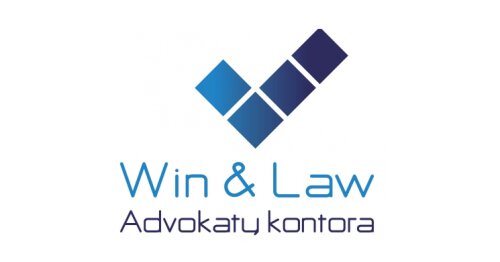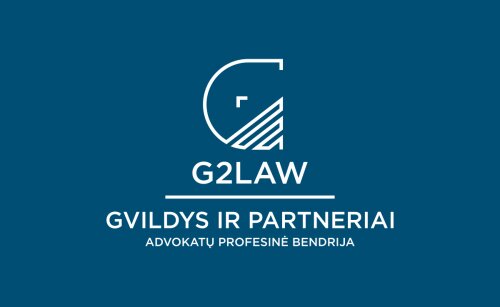Best Education Law Lawyers in Klaipėda
Share your needs with us, get contacted by law firms.
Free. Takes 2 min.
List of the best lawyers in Klaipėda, Republic of Lithuania
About Education Law in Klaipėda, Republic of Lithuania
Education Law in Klaipėda, as in the rest of the Republic of Lithuania, sets out the legal framework for the organization, management, and delivery of educational services. This area of law covers various elements, including admission policies, student rights and duties, educators' qualifications, curriculum standards, discipline procedures, and inclusive education. Education laws are primarily based on the national Law on Education, but regional and local authorities, like Klaipėda Municipality, may also implement specific policies or practices to address local needs. Understanding Education Law is essential for students, parents, teachers, and educational institutions to ensure that rights are protected and obligations are fulfilled.
Why You May Need a Lawyer
People in Klaipėda may seek legal assistance in Education Law for various reasons. These can include disputes over student admissions to schools or universities, concerns about discrimination or bullying, issues with the recognition of diplomas or qualifications, challenges to disciplinary actions, or the need to address special educational needs. Parents may require legal advice if they feel their child’s rights have been infringed, while educators or administrators may need representation if accused of procedural violations. Additionally, legal guidance may be necessary for private or religious institutions seeking to ensure compliance with national and local regulations.
Local Laws Overview
Education Law in Lithuania is primarily governed by the National Law on Education and related legal acts that apply across the country, including Klaipėda. Key aspects include mandatory primary and secondary education, clear anti-discrimination provisions, the right to receive education in the state language (Lithuanian) but also protection for minority language instruction, and regulations around inclusive education for students with disabilities. Notably, Klaipėda’s local government enforces these laws through its education department, which oversees the management and compliance of local educational institutions. Parents and students are also provided mechanisms to lodge complaints or appeals if they believe their educational rights have been violated.
Frequently Asked Questions
What age is compulsory education in Klaipėda, Lithuania?
Education is compulsory from age six or seven until sixteen. This includes both primary and lower secondary education as mandated by Lithuanian law.
Can my child study in a minority language in Klaipėda?
Yes, educational institutions in Klaipėda offer programs or classes in minority languages, subject to national education policy and local demand.
What are my rights if my child is being bullied at school?
Schools are required to follow anti-bullying procedures and ensure a safe environment for every student. Parents can report incidents directly to the school and, if unresolved, escalate the matter to the Klaipėda municipal education department or seek legal counsel.
How are students with special needs supported?
Lithuanian law guarantees the right of students with special needs to receive inclusive education. Schools should provide reasonable accommodations and, where needed, specialized support or education plans.
What are the rules for enrolling my child in a public school in Klaipėda?
Enrollment is typically based on residence within a school’s catchment area. Certain schools may have additional selection criteria or exams, especially for specialized programs.
Can a school discipline or expel my child without my knowledge?
No, schools must inform parents or legal guardians about any significant disciplinary actions. There is a formal process that includes the right to appeal such decisions.
How can I dispute a grade or academic decision?
Parents and students can first approach the teacher or school administration. If the issue is unresolved, a formal complaint can be filed with the school board or the local education authority.
What qualifications are required for teachers in Klaipėda?
Teachers must have relevant educational qualifications that meet Lithuanian national standards. Ongoing professional development is also encouraged and sometimes required.
Is homeschooling legal in Klaipėda?
Homeschooling is permitted in exceptional cases, such as when a child is unable to attend school for health reasons. Approval from local education authorities is necessary.
What can I do if I believe my or my child’s educational rights have been violated?
You should first raise the issue with the relevant school administration. If not resolved, you may file a complaint with Klaipėda’s municipal education department or seek assistance from an Education Law specialist.
Additional Resources
- Klaipėda City Municipality Department of Education - oversees local educational institutions and can provide information on policies or complaints procedures. - Ministry of Education, Science and Sport of the Republic of Lithuania - sets national standards and regulations for the education sector. - Lithuanian Children’s Rights Ombudsman Institution - addresses violations of children’s rights, including in education. - Klaipėda Regional Education Centre - provides support and advice regarding educational matters. - Legal Aid Service of the Republic of Lithuania - offers free legal advice to qualifying individuals.
Next Steps
If you need legal assistance in Education Law in Klaipėda, start by identifying the specific issue you face. Document all relevant facts and communications, then contact the appropriate institution (such as the school or municipal education department) to seek resolution. If the issue remains unresolved, consult a lawyer who specializes in Education Law to discuss your options. Many lawyers offer initial consultations to assess your case and advise you on the best way forward. You can also access public legal aid services if you meet eligibility criteria. Taking prompt and informed action helps protect your educational rights or those of your child.
Lawzana helps you find the best lawyers and law firms in Klaipėda through a curated and pre-screened list of qualified legal professionals. Our platform offers rankings and detailed profiles of attorneys and law firms, allowing you to compare based on practice areas, including Education Law, experience, and client feedback.
Each profile includes a description of the firm's areas of practice, client reviews, team members and partners, year of establishment, spoken languages, office locations, contact information, social media presence, and any published articles or resources. Most firms on our platform speak English and are experienced in both local and international legal matters.
Get a quote from top-rated law firms in Klaipėda, Republic of Lithuania — quickly, securely, and without unnecessary hassle.
Disclaimer:
The information provided on this page is for general informational purposes only and does not constitute legal advice. While we strive to ensure the accuracy and relevance of the content, legal information may change over time, and interpretations of the law can vary. You should always consult with a qualified legal professional for advice specific to your situation.
We disclaim all liability for actions taken or not taken based on the content of this page. If you believe any information is incorrect or outdated, please contact us, and we will review and update it where appropriate.











